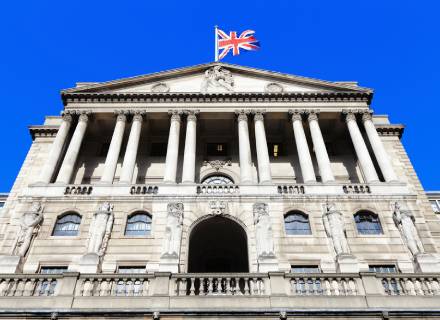The Bank of England (BoE) has revised its projections for the total losses incurred by its quantitative easing bond purchase programme, which is expected to fully materialise over the course of the next ten years.
According to the estimates, the BoE will continue to unwind its portfolio of government bonds at the current rate of 100 billion pounds (USD 125 billion) annually.
The QE programme is expected to result in a net loss of 85 billion pounds by 2034, as opposed to an estimate of 80 billion pounds in February 2024, based on the market path for interest rates as of late March.
The loss would be 45 billion pounds, as opposed to the previous estimate of 50 billion pounds, if interest rates were to return to the BoE’s 2018 estimate of the non-inflationary equilibrium rate of around 2%.
“The figure, a small increase on the 80 billion pound in the BOE’s last quarterly report, underscores the burden QE poses for the public finances as losses mount on the £895 billion of asset purchases made between 2009 to 2021 to support the economy through the global financial crisis and pandemic,” commented a Bloomberg report.
“Until late 2022, profits from the programme reduced the Treasury’s budget deficit and helped pay for public services, but high interest rates and asset sales have reversed the effect. The portfolio is being unwound, with 704 billion pound remaining on the books,” it added further.
Why It Matters
Since the British taxpayers are bearing the brunt of losses incurred during the QE programme at a time when government resources are becoming more and more limited, these losses have become a contentious political issue.
Unadjusted for inflation, QE will lose around 20 billion pounds on a yearly basis until the early 2030s, a sum equivalent to a third of today’s British defence budget, the BoE estimated. Under a guarantee provided by the state in 2009, the taxpayer picks up that bill.
Around 48 Conservative Party lawmakers, who control the majority, demanded weeks back that the Treasury look into ways to deduct its own costs from these payments to the Bank of England.
Finance Minister Jeremy Hunt stressed the importance of keeping monetary and fiscal policy decisions apart in a letter to BoE Governor Andrew Bailey.
The QE programme’s profits, which peaked in 2022 at 124 billion pounds, were distributed to the government during the 2010s when interest rates were low.
These financial flows have reverted, with the Rishi Sunak government now covering the BoE’s losses as it pays higher interest on bank reserves it issues for its quantitative easing programme.
The earlier profits are factored into the projected net loss.
The Bank of England’s gilt purchases currently total 704 billion pounds, having peaked at 875 billion pounds following the COVID-19 pandemic.
Between 2009 and late 2022, QE raised 124 billion pounds, which was fully spent. After that, the British government transferred some 50 billion pounds to the BoE to cover its losses with more to come.
Unadjusted for inflation, the net loss over the program’s lifetime is expected to be around 115 billion pounds, the BoE showed. Assuming rates fall back to an “equilibrium” level chosen by the apex bank, the unadjusted lifetime losses are about 65 billion pounds.
On the BoE’s preferred “net present value,” lifetime losses would range between 45-85 billion pounds, it said. Three months ago, the BoE estimated the range at 50 billion pounds to 80 billion pounds.
The figures are likely to change at the next quarterly update as losses are determined by the path of interest rates. Rates are now expected to remain higher for longer, potentially increasing the losses.
Banks Report 135% Income Increase From BoE Reserves
Meanwhile, new data published by the Treasury Committee shows NatWest, Barclays, Lloyds and Santander received over 9 billion pound in interest on Bank of England reserves in 2023, a 135% increase on the previous year.
“Under quantitative easing, the Bank of England created 895 billion pound of new money in the form of central bank reserves held by commercial banks, of which around 700 billion pound remains in circulation. The Bank pays interest on those reserves at Bank Rate, currently 5.25%. This has generated considerable income for banks as a result of the sharp increase in interest rates since 2021. The Treasury is ultimately liable for these payments as it indemnifies the QE programme,” the committee remarked further.
“During the Treasury Committee enquiry into the Bank’s quantitative tightening programme, some evidence submitted to MPs suggested changing the rules on how bank reserves generate interest in order to reduce the amount paid out by the Bank of England. MPs on the cross-party Committee concluded they did not support this measure as they believe taxes on banks should be set through Parliament in a Finance Bill,” it added further.
During the Treasury Committee’s fact-finding stage, bank bosses listed out the steps they’ve taken to pass through better savings rates for customers. The listed measures include a significant uptick in the amount NatWest and Santander are paying customers in interest.
The communications from the banks also contain data on the lenders’ mortgage repossession rates and their criteria for closing branches.
The Treasury Committee has concluded gathering evidence as part of its enquiry into whether small and medium-sized businesses (SMEs) have adequate access to financing. The report will likely be published this year.

